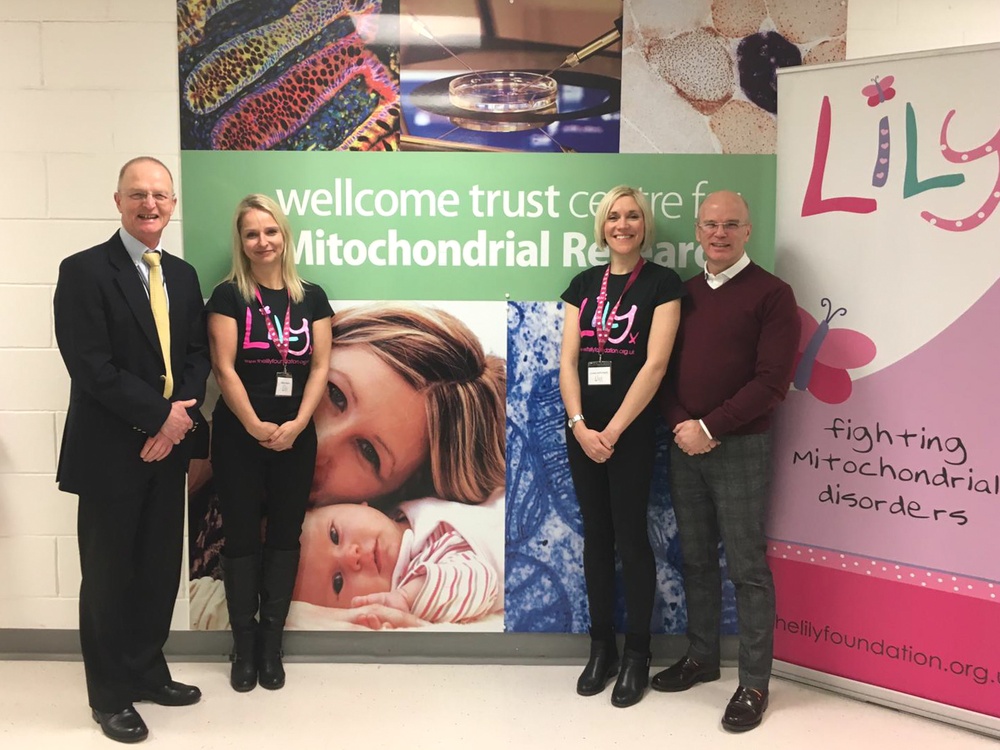When we founded our charity back in 2007, one of our core mission objectives was to advance scientific research into mitochondrial disease. It felt like a lofty aim, because at the time there was very little happening in the field of mitochondrial research. However, as we celebrate our 15th anniversary year, we can feel proud of what we've achieved in this important area of medical science.
Advances in the diagnosis of mitochondrial disease
For example, just this month we announced the launch of Lily Precision Diagnostics. Developed and run in partnership with the UK's top mitochondrial centres and the NHS, this pioneering service is a leap forward in the genetic diagnosis of mitochondrial diseases. Thanks to this work, people with mitochondrial disease will no longer have to wait so long, often enduring years of uncertainty, to get the genetic diagnosis they need to move forward with their lives.
And that's just the latest example of Lily-funded science bearing fruit. Lily Exome Sequencing, launched in 2014, has helped scientists identify dozens of new genes known to be associated with mitochondrial disease, and was so successful in providing patients with a fast, accurate diagnosis that a similar service has now been adopted by the NHS to diagnose not just mitochondrial disorders, but other rare diseases too.
Claire Tranter's family was one of the first to benefit from Lily Exome Sequencing. Claire had sadly lost her first child to mitochondrial disease, and feared that any subsequent children would be born with the condition.
"Without The Lily Foundation and the funding it gives to mitochondrial research, we may never have had the two healthy children we have today," she said. "The charity has helped many other families like ours get a genetic diagnosis. For some it means better clinical care for their sick children, and for others it's the freedom to have more children without worrying they might be born with this devastating disease."
Lily-funded research generally falls into two categories: projects that improve the lives of mitochondrial disease patients today, and those with the longer-term aim of finding a cure or effective treatments.
The former category includes diagnostic advances such as those mentioned above, and better management of specific mitochondrial disease symptoms (e.g. impaired vision and hearing, epilepsy, balance problems, gut issues and neuropsychiatric disorders). These projects bring real, positive change to the lives of patients and their families, as well as contributing to the further study of mitochondrial disease and its impact on people's lives.
The long-term search for treatments and a cure
When it comes to the longer-term search for potential treatments and cures, we fund world-leading research into a wide range of drugs and therapies. These include cutting-edge areas of medical science such as nucleoside therapy, genome editing, enzyme replacement therapy, nicotinamide riboside (NR) therapy, and translational read-through inducing drugs (TRIDs). It's no wonder that The Lily Foundation is now respected globally as a leading light in the search for a cure for mitochondrial disease.
Not all advances in rare disease research involve funding; there are bureaucratic boundaries to break too. In 2015, The Lily Foundation successfully lobbied to change UK law on mitochondrial donation, an IVF technique that makes it possible for women with some forms of mitochondrial disease to have children who don't have the condition. In 2018, the Wellcome Centre for Mitochondrial Research (WCMR) in Newcastle was given approval to use the procedure, also known as mitochondrial replacement therapy, making the UK the first country in the world to offer mitochondrial donation to patients legally.
Professor Grainne Gorman, Director of WCMR, recently commented: "The Lily Foundation makes change happen, always with a patient-focused approach. When it comes to research priorities, patient trials and clinical outcomes, they are helping us inform the future."
The research we fund also has scientific value outside the field of mitochondrial disease. There is growing evidence that shows mitochondrial function is important to many areas of medicine, and that finding a cure for mitochondrial disorders could potentially unlock treatments for other types of disease.
As Professor Ana Andreazza, Scientific Director of MITO2i, said in a recent interview: "Mitochondrial research is a game changer which could transform medical diagnoses, technologies and drug delivery systems, and lead to major advances in the prevention and treatment of many different types of disease."
For more information about Lily research, take a look at our Research projects, or browse our News archive for more in-depth stories about the work we fund as well as interviews and Q&As with the scientists involved.

